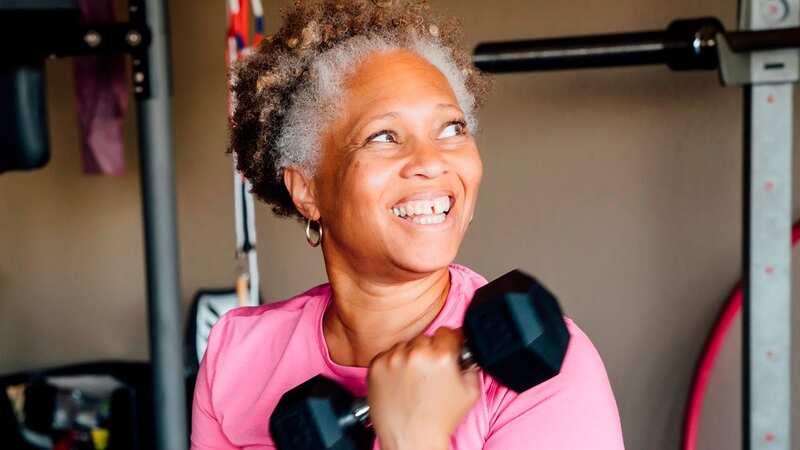Exercise test could predict your likelihood of getting Alzheimer's and dementia

One quick exercise test could tell you whether you're at risk of dementia.
A brain expert has claimed that an easy-to-do exercise can help determine your likelihood of developing neurological diseases such as Alzheimer's and dementia, and it's something we can all do at home. According to Doctor Andy Gaplin, the strength of your grip can act as an indicator of your brain's health, and this can be tested by lifting items of varying weight in order to monitor how strong or weak your grip is in each hand.
Dr Gaplin, a Professor of Kinesiology at California State University, explained the exercise to Diary of a CEO podcast host Steven Bartlett, where he also spoke about the link between muscle strength and brain ageing. He said: "With muscle performance, people don't realize how telling those can be over your overall physiological health.
"A really easy example is most people are somewhat aware that grip strength is an incredibly important predictor. In fact, there's a really cool paper, it's titled something like grip strength is an indispensable marker of ageing, something like that, which is basically saying like you can't not pay attention to grip strength."
The study Dr Gaplin referred to in his comments was published in a journal titled Clinical Interventions in Ageing, and stated there is "evidence to support the use of grip strength as an explanatory or predictive biomarker of specific outcomes". Elsewhere in the paper, it states that these outcomes include bone mineral density, fractures, and falls, nutritional status, disease status and comorbidity load, cognition, depression, sleep, hospital-related variables, and mortality.
 Woman tells of losing 29 kilos and becoming a bodybuilder in her 60s
Woman tells of losing 29 kilos and becoming a bodybuilder in her 60s
"We've actually published a paper last year, Tommy wood from the University of Washington neuroscientists led this project," the expert continued, "One of the things we found there is we can actually predict Alzheimer's and dementia risk via grip strength testing."
Dr Gaplin also stated that warning signs can appear years before a diagnosis, as you may show signs of "short-term or long-term physiological stress" in your 30s or 40s, long before you notice a deterioration in your brain's health. He cited another study which showed that "asymmetry" in your grip strength could indicate a neurological decline.
He said: "One other example - and I'll caution to say there's only been one paper on this - is the asymmetry in your grip strength. So the difference in strength between your right and left hand is actually an early predictor of neurological decline. The reason is that in order for your muscles to contract they have to be sent a signal from your central nervous system, your brain and brain stem.
"If you're having significant asymmetries from one side to the other - and by this, they meant over 10%, so if you have a grip strength of 40 kilos on the right hand, 10% of that would be four kilos. So if your left hand is 30 kilos, that's way more than a 10% difference - and that may be an early sign."
Read more similar news:
Comments:
comments powered by Disqus

































